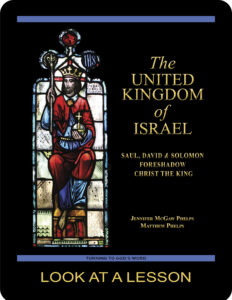vulgar
 Vulgar is one word that comes up occasionally in a Catholic context. Its meaning has changed so much over time that it may be misunderstood.
Vulgar is one word that comes up occasionally in a Catholic context. Its meaning has changed so much over time that it may be misunderstood.
One such example is in the Revised Standard Version Catholic Edition (RSVCE and RSV2CE) translations of the Second Book of Samuel 6:20: “And David returned to his household. But Michal the daughter of Saul came out to meet David, and said, “How the king of Israel honored himself today, uncovering himself today before the eyes of his servants’ maids, as one of the vulgar fellows shamelessly uncovers himself!”
In modern-day English, vulgar means “crude” or “obscene.” At it root, though, it comes from the Latin vulgus, which means “the crowd.” The common Latin translation of the Bible, the Vulgate, is named using this word. The Vulgate was introduced in its time as a translation of the Bible that everyone could understand. It was for the masses and was named as such.
How does the meaning of the above passage and David’s action change >when you understand that in this context vulgar means “common” rather than “obscene”?
you also may like our study of Saul, David & Solomon
 The United Kingdom of Israel: Saul, David & Solomon Foreshadow Christ the King, a 28-lesson Catholic Bible study with an imprimatur, provides an in-depth look at the First and Second Books of Samuel to learn how the lives of the monarchs Saul, David, and Solomon point ahead to the kingdom of heaven. The unified reign of King David is seen as a foreshadowing or type of the unity that is one of the four marks of the Church—the kingdom of God—established by Jesus Christ. Click on the book’s cover to view a sample lesson.
The United Kingdom of Israel: Saul, David & Solomon Foreshadow Christ the King, a 28-lesson Catholic Bible study with an imprimatur, provides an in-depth look at the First and Second Books of Samuel to learn how the lives of the monarchs Saul, David, and Solomon point ahead to the kingdom of heaven. The unified reign of King David is seen as a foreshadowing or type of the unity that is one of the four marks of the Church—the kingdom of God—established by Jesus Christ. Click on the book’s cover to view a sample lesson.
 Click on the picture of the statue of Moses with horns (above) to learn more about Lost in Translation. A new entry is archived each Monday. Contact us to receive Lost in Translation by email every week. You may use any of the contact links on our website to ask Matthew a question.
Click on the picture of the statue of Moses with horns (above) to learn more about Lost in Translation. A new entry is archived each Monday. Contact us to receive Lost in Translation by email every week. You may use any of the contact links on our website to ask Matthew a question.
